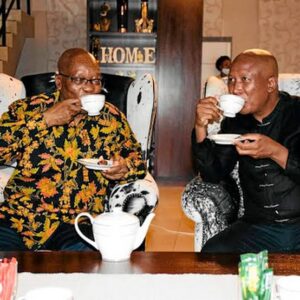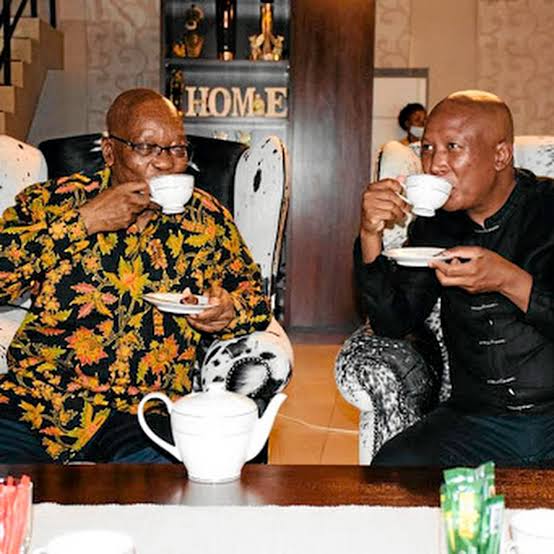The recent political developments in South Africa have stirred significant attention, with the MK Party (MKP) emerging as a major player, particularly after attracting prominent members from the Economic Freedom Fighters (EFF). MKP deputy president John Hlophe has emphasized that the party’s actions are not aimed at destroying the EFF, despite the significant shifts in the political landscape.
Hlophe made these remarks following the MKP’s successful recruitment of Floyd Shivambu, the former deputy president of the EFF, who has now taken on the role of national organizer within the MKP. Hlophe praised Shivambu’s political acumen, describing him as “sharp like a razor” and highlighting the merit behind his new role in the MKP.
Shivambu’s departure from the EFF has caused considerable disruption within his former party. EFF leader Julius Malema has not held back his feelings, publicly expressing a sense of betrayal earlier in the week. Malema’s comments suggest that Shivambu’s exit has left a significant void in the EFF, a party that Shivambu co-founded and played a pivotal role in shaping.
During his first public appearance as part of the MKP, Shivambu addressed the tensions surrounding his departure from the EFF. He dismissed the notion of pleasing egos, particularly those who felt betrayed by his decision, and instead called for a focus on political ideology over personal grievances. He also warned against the dangers of “strong egos” within opposition parties.
Shivambu received a warm reception from MKP leader Jacob Zuma, who hailed him as a “real, honest politician” and commended him for his principled approach to politics. Zuma lauded Shivambu’s decision to join the MKP, describing it as a move that will be remembered in history. According to Zuma, Shivambu’s actions reflect a deep understanding of political timing and the importance of making decisions for the right reasons.
The MKP, which is still in its infancy, has quickly ascended the ranks of South African politics. In the recent national elections, the party surpassed the EFF, securing the third position among major political parties with 14.58% of the vote, while the EFF dropped to fourth place with 9.52%. This unexpected turn of events has significantly altered the political landscape, with the MKP now positioned as a formidable force.
The relationship between Malema and Zuma has been complex, marked by past animosities during Zuma’s presidency. However, in recent years, the two leaders have rekindled their relationship, with Malema even welcoming Zuma’s entry into the political arena. Despite this, tensions remain, particularly following the MKP’s rapid rise and its apparent encroachment on the EFF’s political territory.
The MKP has not only attracted Shivambu but has also brought in other notable figures, including former ministers Nathi Nhleko and Des van Rooyen. This influx of high-profile members has bolstered the party’s credibility and influence, further challenging the established political order.
Despite the MKP’s success, there are concerns about the party’s leadership structure, particularly the lack of female representation in its top echelons. As of the latest announcement, only one woman holds a position in the party’s top eight leadership roles, raising questions about gender balance within the party.
As the MKP continues to grow, its impact on South African politics will be closely watched, especially in how it navigates its relationship with the EFF and other opposition parties.

